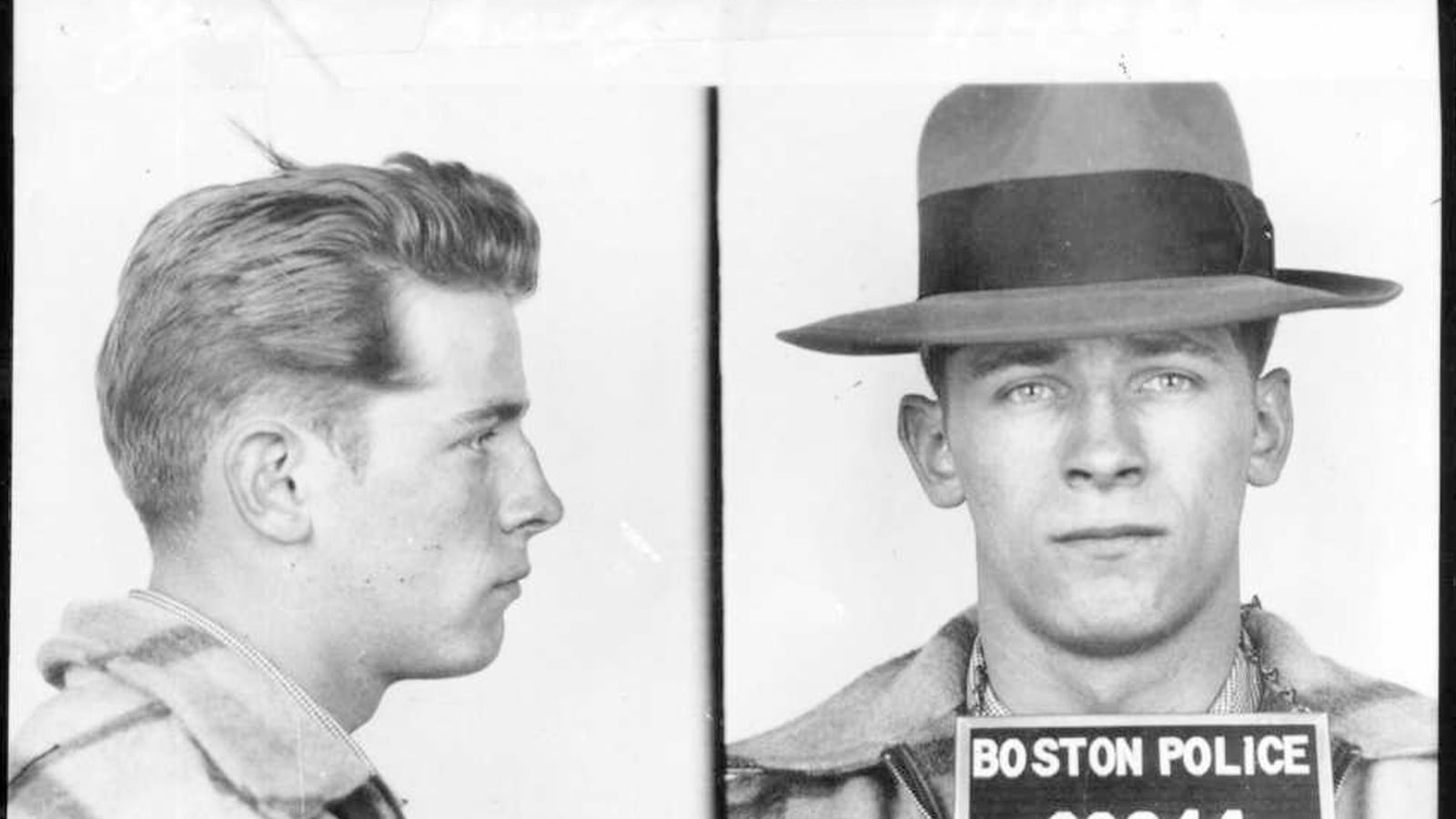“Today is a good day,” said Carmen Ortiz, U.S. Attorney for the District of Massachusetts, standing in front of the John J. Moakley courthouse in Boston, as she announced to the media that the notorious gangster James “Whitey” Bulger had just been sentenced to two life terms in prison. “The myth, the legend, the saga of James Bulger is now finally over. He is ancient history,” she said.

Ortiz was flanked by a collection of men in suits, the heads of various law enforcement agencies that had been involved in Bulger’s prosecution and conviction. They all looked relieved that a man whose murderous reign as a mob boss had been enabled by the fact that he was a covert Top Echelon informant for the FBI, was, they hoped, on a fast track to obscurity.
There was no mention by Carmen Ortiz that Bulger, at the same time he was committing his crimes, had been protected by a predecessor of hers as U.S attorney, a man named Jeremiah O’Sullivan. This had created the unusual circumstance that Bulger was put on trial by the very U.S. attorney’s office that had, years earlier played a crucial role in sustaining his life of crime—a fact that was rarely mentioned throughout Bulger’s two-month long trial.
Justice is blind, they say, and sometimes so are FBI agents, cops, prosecutors, and judges, many of whom engaged in acts of willful blindness during the Bulger years.
Bulger’s prosecution and conviction was a major reclamation project, a seemingly successful attempt by the U.S. Attorney’s office to reclaim its reputation. Ortiz seemed to signal as much when she made a point of thanking “honest and hard working law enforcement, prosecutors from my office, and members of the State Police as well as the DEA and the Bulger Fugitive Task Force, they doggedly pursued this case. If it had not been for their efforts, we would not be here today.”
Among people who had followed the Bulger story, early incarnations of the Bulger Task Force were suspected of being woefully derelict in their duties, enabling Bulger and his paramour, Catherine Greig, to remain on the run for sixteen years, though they were mostly hiding in plain sight in sunny Santa Monica, California. The theory was that Bulger knew too much. People in law enforcement didn’t want him to be caught because of all the people he might implicate were he ever allowed to tell his version of events in a court of law.
Throughout the trial, Bulger’s “version” remained buried. That deal was sealed before opening statements in the trial ever began, when Judge Denise Casper ruled against Bulger’s pre-trial claim that he could not be prosecuted for his crimes because he had been given immunity by Jeremiah O’Sullivan. No mention of any immunity deal would be allowed to be entered into evidence at the trial, declared Casper, who ruled that the claim was legally untenable. Bulger’s legal team of J.W. Carney and Hank Brennan argued that even if you discounted their client’s claim of immunity, shouldn’t it be up to the jury to decide whether or not the claim seemed valid or not? The judge said no, and her ruling was affirmed by a decision from a First Circuit appellate court.
This decision turned the trial of Whitey Bulger into one of the most lopsided cases in the history of jurisprudence. Bulger declared the trial a “sham” and exercised his right to not testify. The gangster was found guilty on 31 of 32 criminal counts. He had been charged with 19 murders and was found guilty of 11, which was viewed by some as a modest victory for Carney and Brennan.
The murder charges had been the centerpiece of the trial, which was ably prosecuted by Fred Wyshak and Brian Kelly, two men who have been overseeing Bulger –related trials for twenty years.
On Wednesday, the day before Whitey was sentenced, those murders once again played a central role as the relatives of Bulger’s many victims were allowed to give impact statements before the court. Family members who had lost fathers, husbands and siblings were allowed to give a 10-minute address to Judge Casper about how the murders affected their lives, which would be part of her consideration in sentencing Bulger.
It was an intensely sad and emotional day as these people, now in their middle age, recounted how their lives had been ruined years ago by the brutal murder of people near and dear to them. As Bulger sat quietly, with his back to those who were speaking, they presented a litany of loss and sorrow that had some in the spectator’s gallery in tears.
“You took my father,” said Timothy Connors, son of murder victim Eddie Connor.
“Maybe you don't understand how important it is for a little boy to have his father, but my life changed forever that day.”
Kathleen Connors Nichols, another child of Eddie Connors, told of the "mentally exhausting" stigma that murder leaves on a family. For kids, it means having to answer the question: How did your father die?
"Do you tell [people] the shocking truth -- that he was practically cut in half from the overkill of ammo fired into his body?" Nichols said. "Or do you give them the PG version that will stop any subsequent questions?"
Steve Davis, brother of Debra Davis, who was strangled to death in 1981, wept openly and said, "This man has built up so much hate in my heart, I'd like to strangle him myself." Davis shouted at Whitey, "You piece of shit, look at me!” Bulger glanced up only briefly.
Though most of the 12 who spoke focused on their own personal loss, two made reference to the fact that the government played a role in protecting Bulger. David Wheeler, whose father Roger Wheeler was killed in 1981, blamed the FBI, whose corrupt agents sheltered Bulger for at least two decades. "They are as responsible for that murder as the defendant sitting here before you," Wheeler said to Judge Casper.
Theresa Bond, daughter of murder victim Arthur "Bucky" Barrett, asked Bulger to look at her, eliciting another brief glance from the defendant. Bond then cited testimony of how her father, handcuffed to a chair seconds before Bulger shot him, prayed in his last moments over a wallet-size photo of a child. "That child was me," she said. "I want you to know I don't hate you. I hate the acts of our government that allowed you to rule the streets."
When it was all over and the family members had spoken, Bulger was asked by the judge if he wanted to make a statement. Bulger stood and said, “No.”
It wasn’t exactly like the ending of “Angels With Dirty Faces,” when James Cagney as Rocky Sullivan screams and whimpers on his way to the electric chair, but the trial, conviction and sentencing of Bulger did much to strip away the mobster’s legend as a tough guy who held to a code of honor. When it was over, Bulger went out with a whimper.





